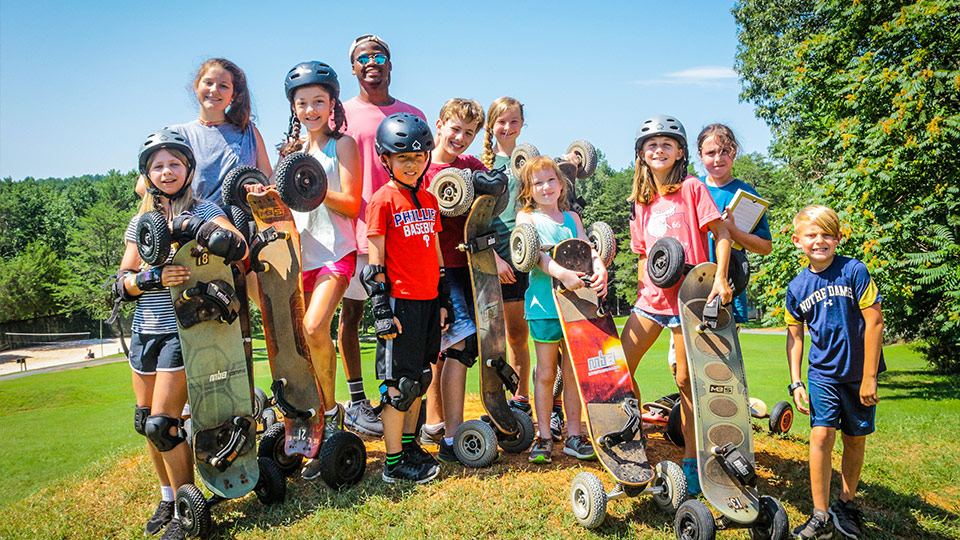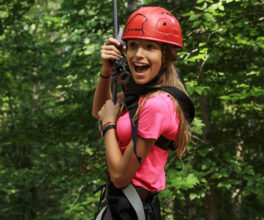Parents eager to introduce their children to the wonders of summer camp face a big question: when is the best time for kids to start? Deciding when to first send a child to summer camp can be a source of confusion, especially when it comes to overnight camp. After all, since every child is different, there’s no single “right” age.
We start our youngest camper groups at age 7 because we know many 7-year-olds are ready, and we believe there are powerful benefits to starting early, from gaining new skills and confidence to developing treasured relationships.
Looking for some guidance determining if your child is ready? Read our advice on how to tell if your child is ready for sleepaway camp.
Confidence and Independence
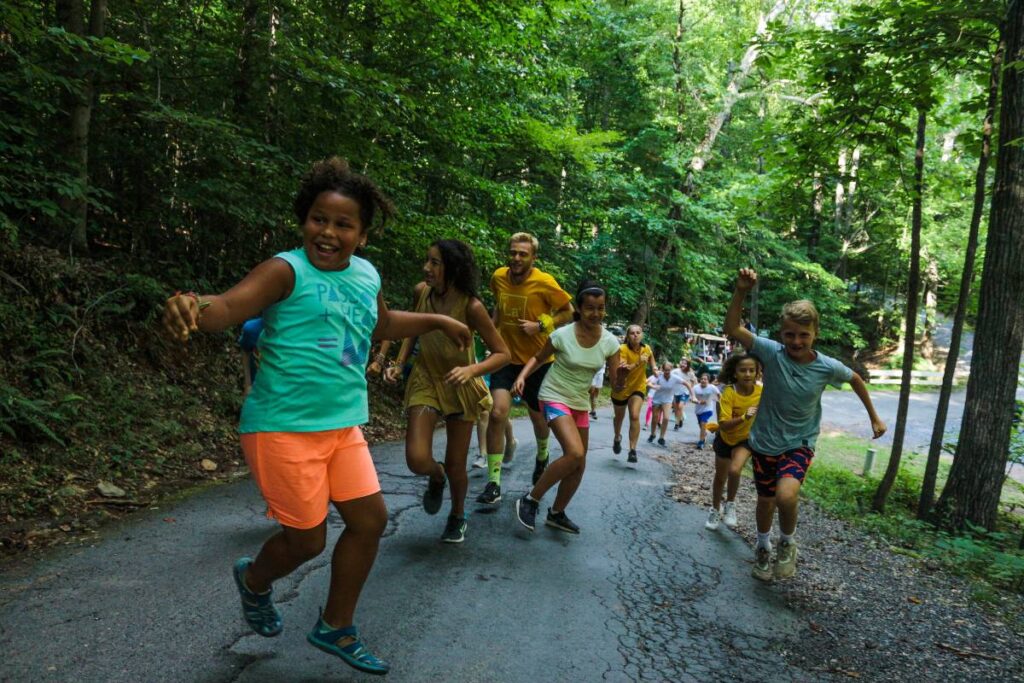
At Camp Friendship, campers make meaningful choices every day. They take up new responsibilities, like doing their cabin chores, and they explore their environment with greater independence. Even something that seems simple, like getting to an activity site on time, is valuable practice.
After all, to strengthen a skill kids need opportunities to practice. These opportunities are especially impactful for younger kids, since the earlier they get to flex their independence and responsibility muscles, the more confident and capable they’ll be as they age.
At Camp Friendship, kids are safe and supported—the youngest have a ratio of one counselor for every five children—while also getting to stretch their wings. If you were to ask us what makes the best summer camp experience for kids, we would name two ingredients: first, supervision and support as needed. Second, opportunity and empowerment to try different things and grow in unique ways.
You might be surprised by what your child can do!
Diverse Perspectives and Experiences
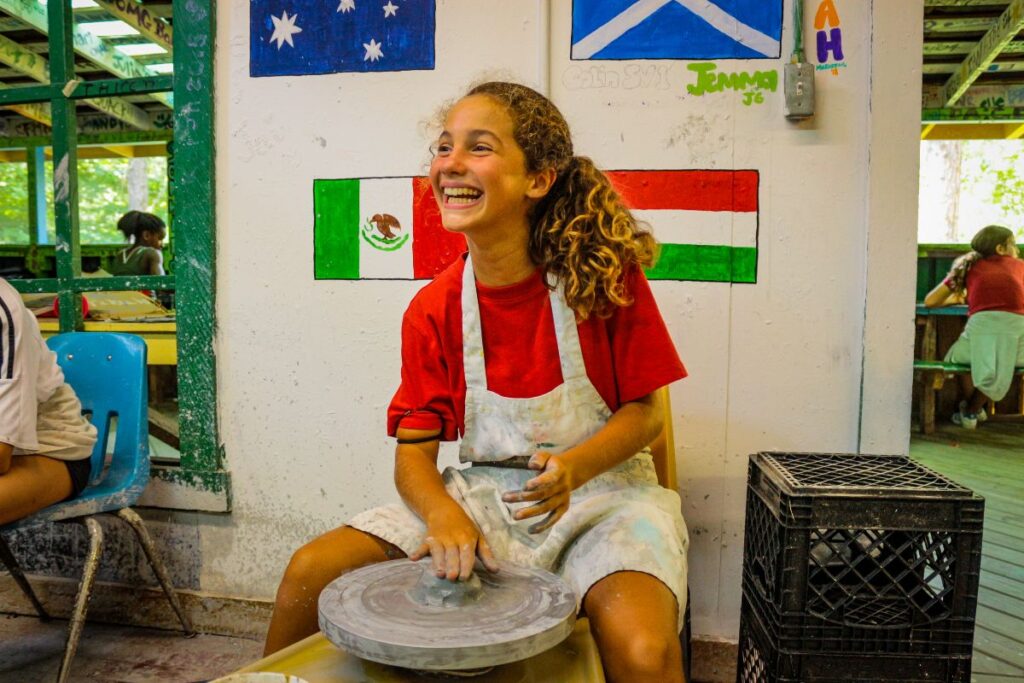
Camps like ours draw staff and campers from around the country and even from around the world. Since our founding, we’ve welcomed campers and staff from over 90 countries. This diversity of backgrounds and personalities helps each camper feel comfortable with their own unique differences. It also broadens their horizons!
Consider this: most grade-school children have heard of France. A few might have even visited on vacation. It’s very different, though, to meet someone from France, to become friends, and to hear about what their life is like. Imagine that same experience happening with children and counselors from many states and countries, and you’ll get a sense of the ways Camp Friendship can expand a young child’s sense of the world.
Campers also benefit from attending activities in mixed-age groups. Our Junior Boys and Junior Girls Villages are home to campers from ages 7 to 11, with camp-wide activities and interaction within the group.
Mixed-age interactions provide a diverse range of relationships and experiences. Younger kids love having older ones to look up to, and older kids enjoy the chance to show off what they know and help others.
Social Skills and Collaboration
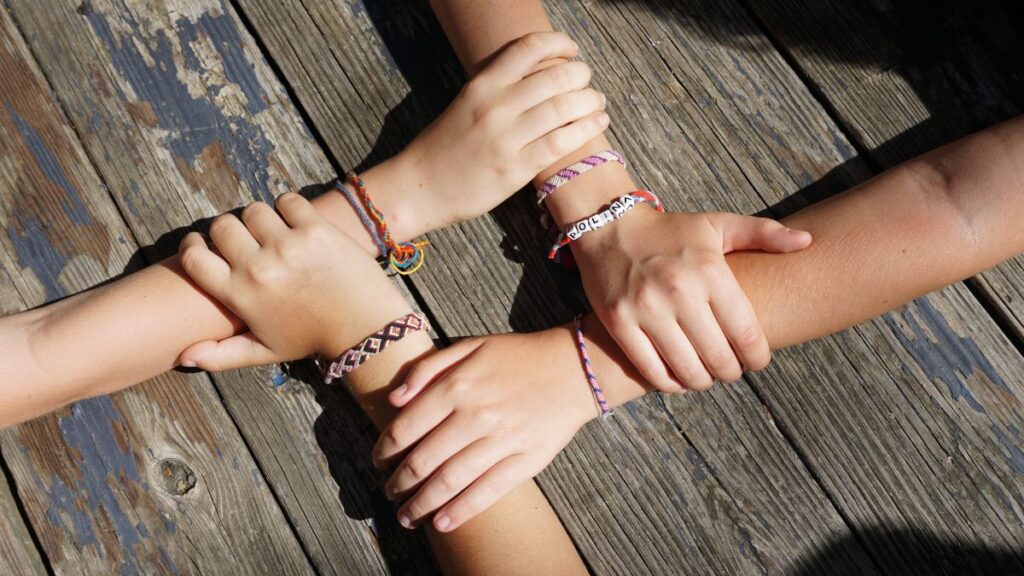
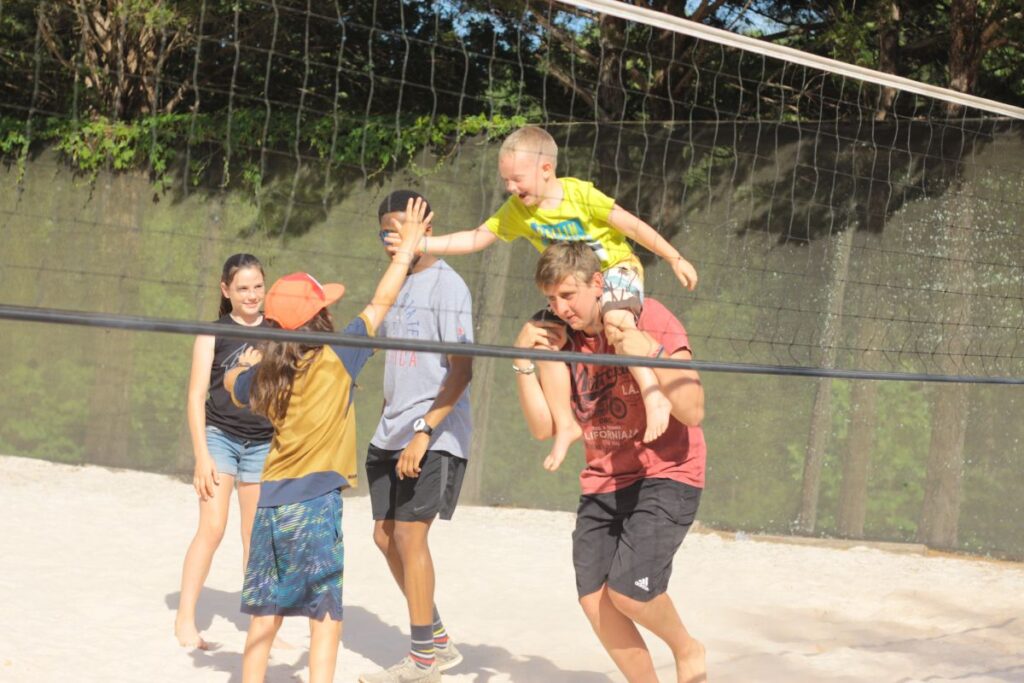
Mixed-age groups are great for helping younger children further develop social skills.
For instance, mixed-age groups have more cooperation and less conflict than the same-age peer groups kids generally interact with in school and sports. At camp, kids learn how to adapt activities and interactions to accommodate a range of ages and abilities. These experiences also inspire kids to develop different skills and greater independence. You’ll find that your 8-year-old is very interested in learning how to do anything his 11-year-old friend can do!
Since camp allows greater freedom and asks for greater responsibility, kids get more practice with communication, cooperation, and creativity. Campers work together in the cabins, dining hall, and the great outdoors to accomplish tasks and make each day fun and meaningful.
Today’s young kids in particular faced a lot of disruption, and sometimes isolation, during the COVID-19 pandemic. For them, the chance to develop these social skills is that much more valuable!
Disconnecting and Being Present
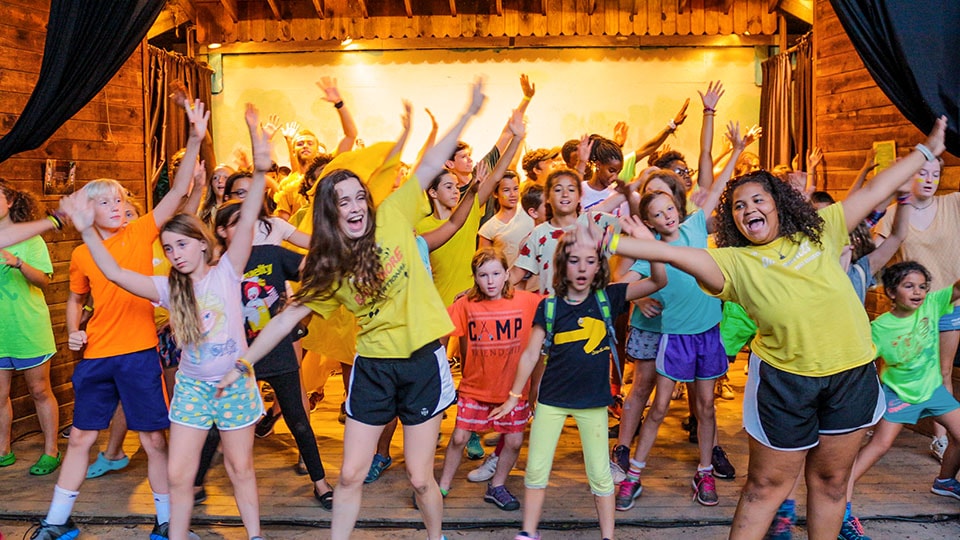
Almost all kids are using devices—in school and at home—by the age of 7. For better and for worse, devices and online access are part of our lives. For all their potential, most of us recognize that this access comes with pitfalls and downsides. Even adults struggle to manage their own screen use in a healthy way!
That’s why we cherish giving campers a tech-free summer. With the distractions and pressures of social media set aside, kids can focus on being with others, appreciating nature, and exploring their interests.
Giving kids as young as 7 the chance to disconnect helps them learn to be truly present. It also gives them a glimpse of how less can be more. At the end of camp, they return to the world of screens with more perspective. They understand the value of setting devices aside from time to time to really focus on their in-person connections.
More Time for Treasured Relationships
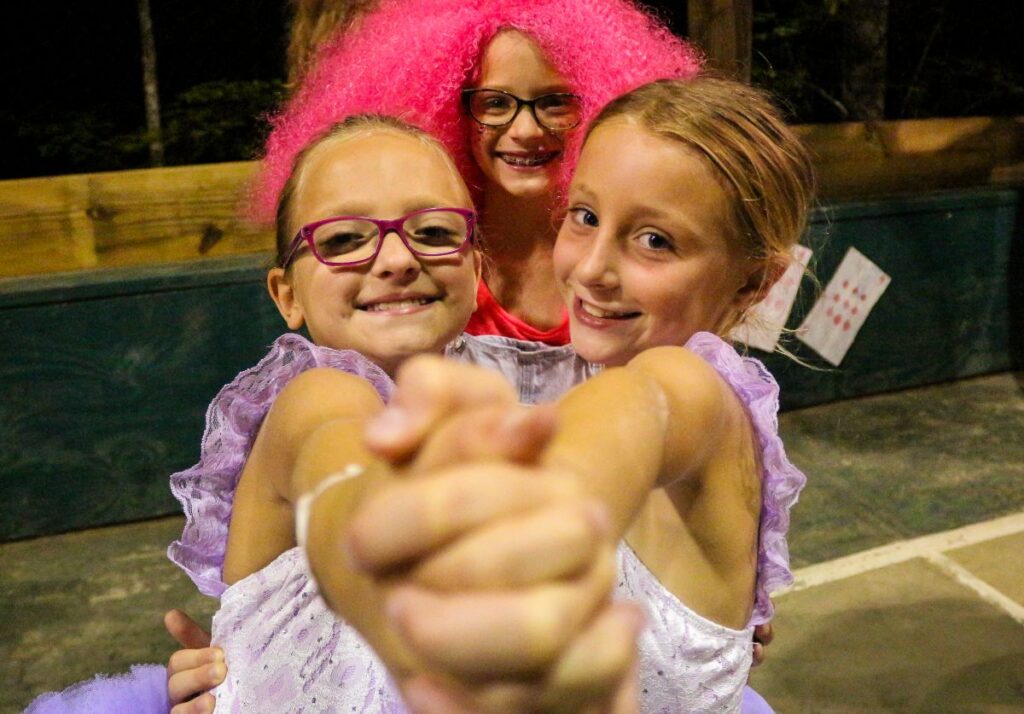
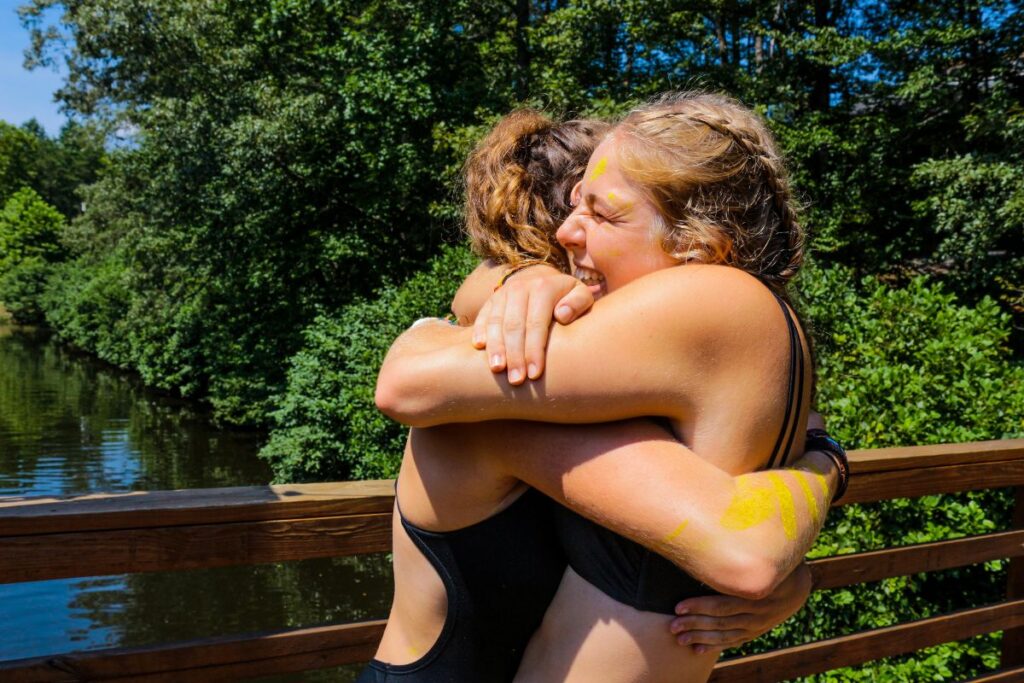
Many of our campers return year after year. Each summer they’re excited to renew existing camp friendships and begin new ones. They look forward to taking the next step in their favorite activities and challenging themselves.
Starting summer camp early gives your child more time to nurture and enjoy those precious relationships. Each friendship and treasured camp tradition takes on more meaning with each passing year.
At Camp Friendship, we work tirelessly to create a warm and welcoming environment for all campers. For those in our Junior Villages, we’ve cultivated a set of opportunities that serve two equally important goals: empowering children to explore more about themselves and enabling them to have the time of their lives.
